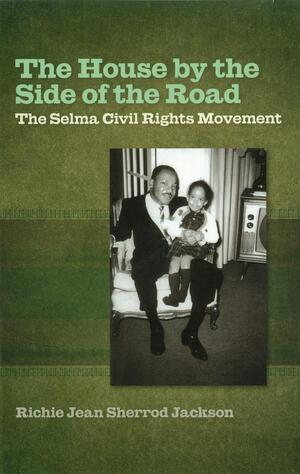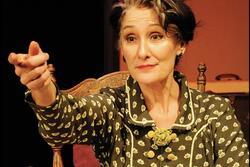Ordinary Role Models: Going Beyond Pop-Culture
We continue looking at pop culture and role models with this post from one of our Rising Voices Fellows. Be sure to check the JWA blog each Tuesday for a new post from our fellows—and check out the great educational resources provided by our partner organization, Prozdor.
I’m no “gleek,” but from time to time, I confess, I’ll catch an episode of Glee. In a recent show, one of the main characters, Marley, was told to portray a pop singer whose behavior was completely different than her own. When she refused, she was suspended from rehearsals for not being a team player.
My first reaction was, “You go, girl!” Glee portrayed this girl as strong—someone who was willing to pay the price for remaining true to herself.
This is an important message, one that I have also seen in the real world.
Last February, I took a trip down to the American South with my Hebrew school, Prozdor. Seven students, one teacher, and a van we named Delilah.
We embraced all of the classic southern experiences—we ate fried food, started to say “y’all,” and visited the museums that are on everyone’s to do lists.
But the most meaningful encounters involved meeting ordinary people who found themselves in extraordinary situations.
Richie Jean Sherrod Jackson—a childhood friend of Martin Luther King Jr.’s wife and later a host for the civil rights leader—opened up her home and story to us during a visit to what she called “the house by the side of the road.”
Her home was ordinary looking—wall-to-wall shag carpets, floral armchairs, and lace curtains—but what went on inside that home was anything but typical. Along with her husband, Sullivan, she welcomed Dr. King as an honored guest, turning her private home into the headquarters of the inspirational leader during the Selma Civil Rights protests. During our time there, she showed us the desk that Dr. King worked at, the phone that he used to conduct business, and the bed he slept in.
Civil Rights leaders like Dr. King are praised now, but back then, what he was doing was illegal. By opening her home, Jean was putting herself at risk too. She knew the dangers she faced, but she also knew that she would be making history.
Over 40 years later, she re-opened her doors to us, a group of seven teenagers. She didn’t want her home to be turned into a public museum, but she wanted to inspire youth—and that she did.
Jean’s husband encouraged her to write a book about all of her experiences. Jean used her voice to show that ordinary people have the potential to create and support extraordinary situations—all you have to do is open the door. Jean encouraged us to write and hoped that one day she would be able to read about our own experiences trying to change the world. Sadly, we learned last month that Jean passed away.
For me, Jean is a role model worth celebrating. She isn’t like the extravagant pop culture celebrities we often see on TV or read about in magazines. She never tried to draw attention to herself. Instead, she always strived to draw attention to her message.
Female role models in pop culture today offer some positive messages, too. Miley Cyrus promotes the idea that girls shouldn’t care about what others think of them. Lady Gaga dresses the way she wants and isn’t bothered if others think her costumes are strange. But these empowering messages often get lost amid the gimmicks of pop culture and a celebrity lifestyle that is totally different than the one that teenage girls experience. Stories about ordinary girls, like Marley on Glee, need to be more the rule than the exception in pop culture.
We need more relatable women role models. For most of us girls, we are more Jean and Marley than Miley and Gaga.
This piece was written as part of JWA’s Rising Voices Fellowship.







Eden! I think that is so cool that you got to personally listen to a women like Jean, I am sure that experience was amazing, and it was really cool that you wrote about it!